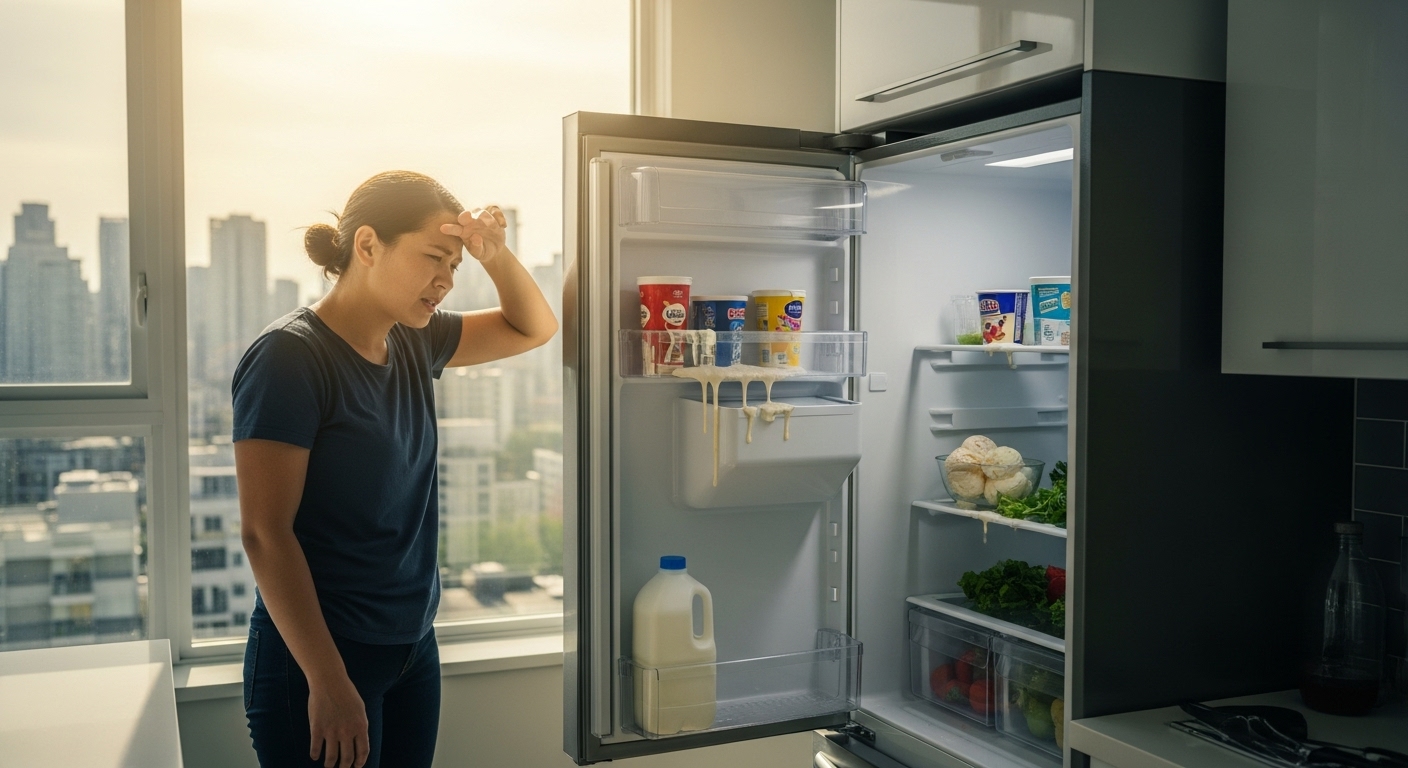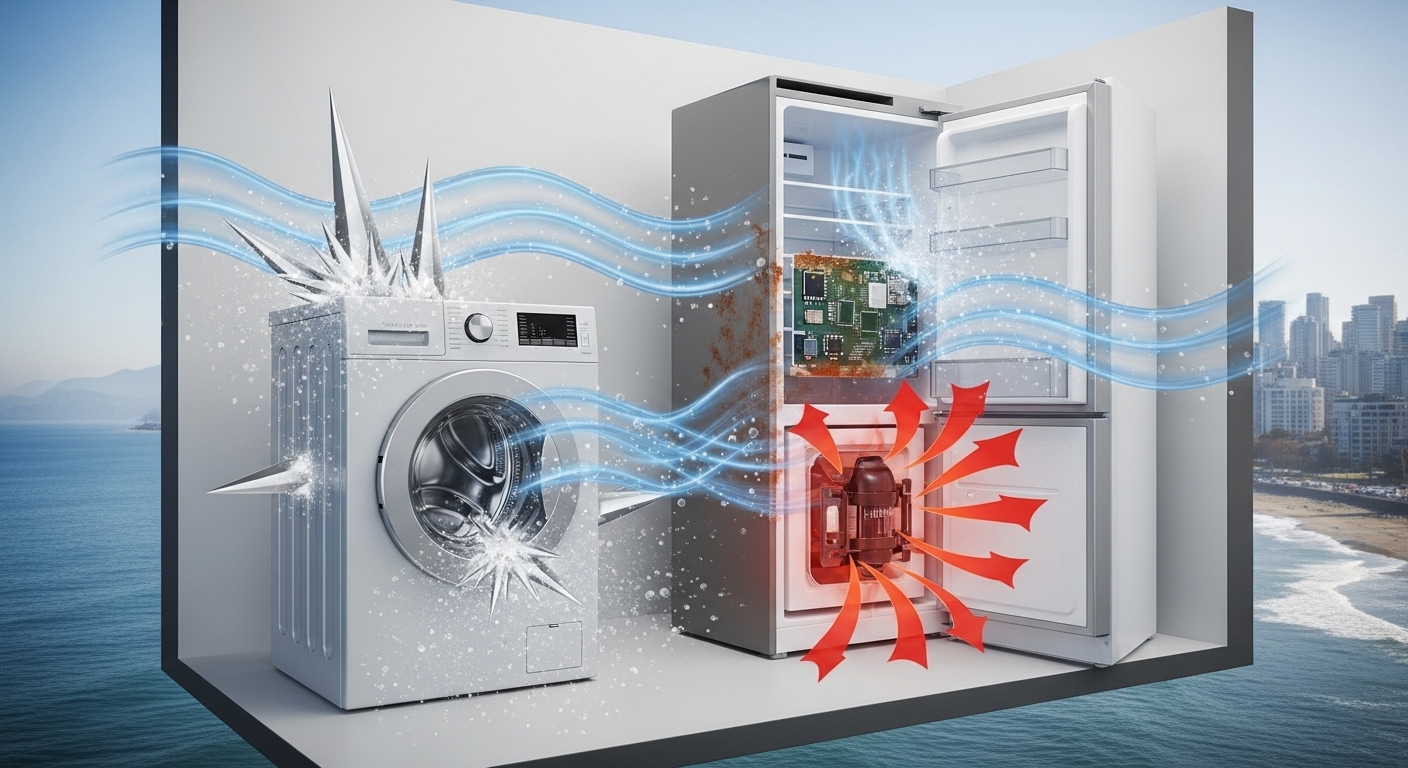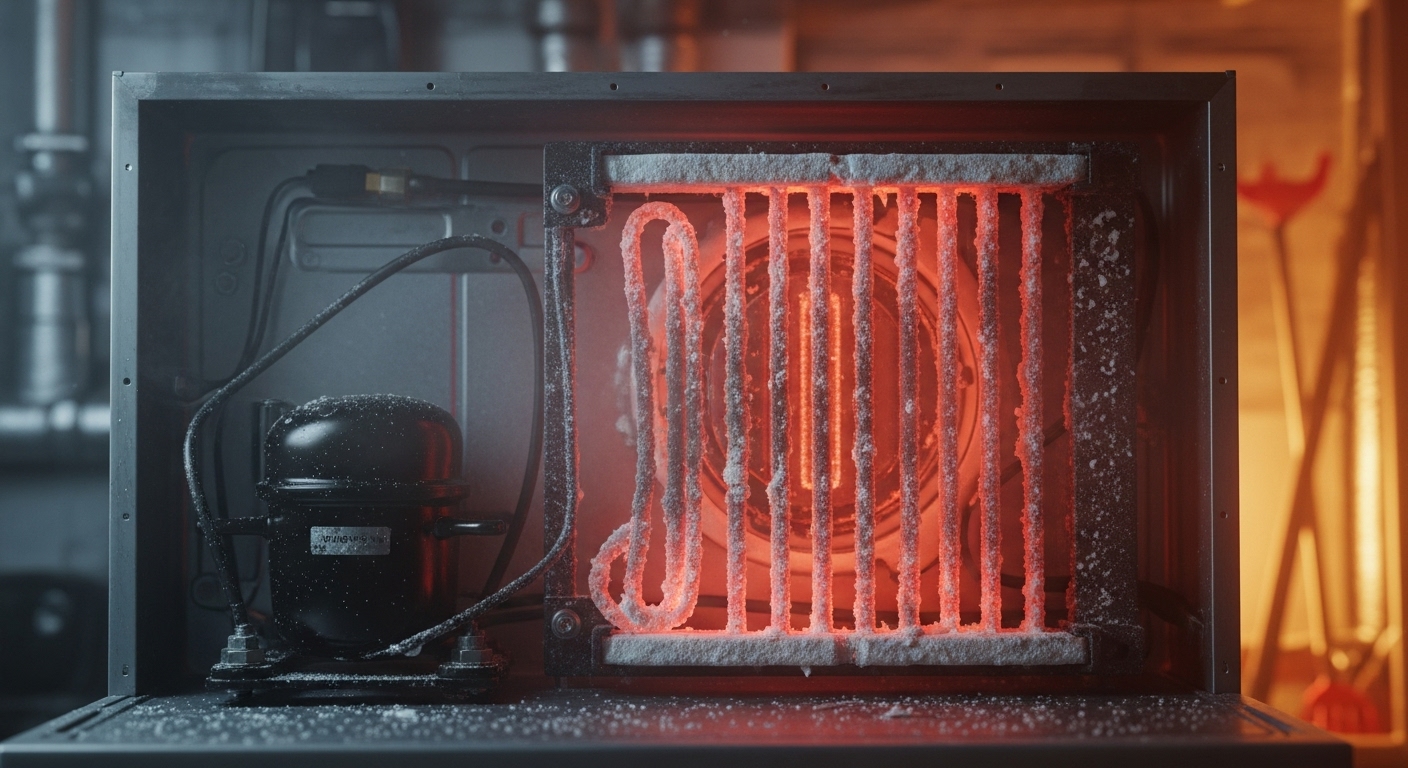Wondering why your appliances seem to break down more often during Burnaby’s scorching summer heat waves, leaving you with expensive repair bills that could have been prevented? You’re experiencing the hidden reality that extreme temperatures are systematically damaging your home appliances in ways most homeowners never see coming, turning essential household equipment into costly repair nightmares during the worst possible times.
Picture this nightmare scenario that’s become all too common in Burnaby homes: it’s a sweltering July afternoon with temperatures soaring past 35°C, and your refrigerator suddenly starts making strange grinding noises before going completely silent. Your ice cream turns to soup, your groceries spoil, and the repair technician delivers the devastating news that your compressor has seized up from heat stress. What should have been a simple summer day has turned into a $1,200 emergency replacement during peak season pricing, all because you didn’t understand how Burnaby’s unique coastal climate was slowly killing your appliances from the inside out.
The harsh reality is that your home’s essential appliances aren’t just working harder during summer heat waves – they’re literally being destroyed by environmental conditions that most homeowners never recognize as threats until it’s too late. Unlike other Canadian cities that deal with predictable seasonal patterns, Burnaby’s coastal location creates a perfect storm of salt air corrosion, humidity damage, and thermal cycling that can reduce appliance lifespans by up to 30% compared to interior locations. Your refrigerator’s compressor is running overtime trying to maintain cool temperatures against scorching ambient heat, your air conditioner is struggling against humidity levels it was never designed to handle, and your dryer is fighting a losing battle against moisture-laden air that makes every load take twice as long to complete.
What makes this situation particularly devastating is that most of these expensive breakdowns are completely preventable with the right knowledge and preparation. Understanding which appliances are most vulnerable to summer heat stress, implementing targeted cooling strategies during extreme temperature periods, and following location-specific maintenance schedules designed for Burnaby’s coastal environment can prevent up to 85% of heat-related appliance failures while extending equipment lifespans by years rather than months. The difference between homeowners who sail through summer heat waves without appliance problems and those who face thousands in emergency repair bills often comes down to understanding these hidden threats and taking action before the mercury rises.
Key Outtakes:
- Burnaby’s coastal humidity and salt air reduce appliance lifespan by 20-30% compared to interior locations, making summer heat particularly destructive to home equipment
- Appliances consume up to 50% more energy during heat waves while experiencing accelerated component degradation that can cut operational lifespans by years
- Refrigerator compressors fail at dramatically higher rates when ambient temperatures exceed 30°C, with replacement costs ranging from $800-1,500 during peak season
- Proper preventive maintenance before summer arrives can prevent 80% of heat-related appliance breakdowns and extend equipment life by up to 40%
- Emergency cooling protocols during heat waves can protect appliances from immediate failure while reducing energy consumption by up to 25%

Understanding Burnaby’s Hidden Appliance Killers
Before diving into specific appliance threats, it’s crucial to understand why Burnaby’s summer conditions are uniquely destructive to household equipment. Our coastal location creates environmental challenges that go far beyond simple temperature elevation, subjecting appliances to a multi-faceted assault that interior cities simply don’t experience. The combination of Pacific Ocean moisture, salt-laden air, and rapid temperature fluctuations creates conditions that systematically attack every vulnerable component in modern appliances, often in ways that remain invisible until catastrophic failures occur.


The salt air phenomenon represents one of the most underestimated threats to Burnaby appliances, reaching much further inland than most residents realize. During storms and high-wind conditions, salt particles can travel up to 25 kilometers from coastal areas, gradually accumulating inside appliance venting systems and settling on internal components that were never designed to withstand corrosive exposure. This isn’t just a problem for waterfront properties – homes throughout Burnaby, Richmond, and Surrey show signs of salt corrosion that dramatically accelerates metal component deterioration and voids manufacturer warranties that specifically exclude environmental damage.
Humidity levels in Burnaby regularly exceed the 30-50% range that most appliances were designed to handle, reaching levels during summer months that promote rapid corrosion of internal metal components while encouraging mold and bacterial growth in moisture-sensitive areas. Front-loading washing machines become particularly vulnerable because their horizontal drum design and rubber door seals create perfect moisture traps where condensation accumulates and promotes the kind of biological growth that causes persistent odors and eventual electronic system failures. When you combine this baseline humidity stress with the increased usage patterns typical of summer months, you create compound stress conditions that force appliances to work harder precisely when environmental conditions are most challenging.
The thermal cycling damage that occurs in Burnaby’s climate is particularly insidious because it happens gradually and remains invisible until components fail suddenly. Unlike continental climates where temperatures remain consistently hot or cold, our coastal location creates daily temperature swings that can fluctuate as much as 15 degrees within a single day. This constant expansion and contraction gradually weakens seals, gaskets, and electronic components in ways that cumulative stress testing rarely accounts for, leading to premature failures that often occur without warning during peak usage periods.
Refrigerators: Fighting a Losing Battle Against Summer Heat
Moving from understanding the environmental challenges to examining specific appliance vulnerabilities, refrigerators represent ground zero for summer heat damage because they’re engaged in a constant battle to maintain cool internal temperatures against increasingly hostile external conditions. During Burnaby’s intense heat waves, when indoor temperatures can reach 30°C or higher even with air conditioning running, refrigerators must overcome temperature differentials that force compressors to run continuously rather than cycling on and off as they normally would in moderate conditions.
The physics of refrigeration become particularly challenging when ambient temperatures climb above 25°C, as research demonstrates that refrigerator efficiency declines dramatically with every degree of temperature increase. Moving a refrigerator from a 21°C environment to a 27°C room reduces efficiency by 22-25%, while placing the same appliance in a 32°C environment causes efficiency to plummet by 45-50%. During Burnaby’s most intense heat waves, these efficiency losses translate directly into compressors that never shut off, electricity bills that spike dramatically, and accelerated component wear that can reduce a refrigerator’s lifespan by years.
The condenser coils, responsible for releasing heat extracted from the refrigerated space, face particular stress during summer months because they struggle to dissipate heat efficiently when ambient air temperatures are already elevated. When these coils become coated with dust, pet hair, and the salt deposits common in Burnaby’s coastal environment, their efficiency plummets even further, creating conditions where compressors work overtime while consuming significantly more electricity. Professional appliance technicians report that dirty refrigerator coils can reduce cooling efficiency by up to 25% while forcing compressors to run 50% longer than normal to achieve the same internal temperatures.

Compressor failure represents the most catastrophic and expensive refrigerator problem, with replacement costs typically ranging from $400-800 for the part alone, not including labor for removal and installation. During summer heat waves, compressor failures spike dramatically because the specialized refrigerant oil that lubricates internal components thins excessively when temperatures remain elevated, allowing increased metal-on-metal friction that leads to mechanical seizure. Once a compressor fails due to heat stress, the repair often costs more than the refrigerator is worth, forcing homeowners into emergency replacement purchases during the worst possible time when demand is highest and prices are premium.
Prevention strategies for refrigerators center on three critical interventions that must be completed before summer heat arrives. First, condenser coils require cleaning every 2-3 months in Burnaby’s coastal environment, compared to annual cleaning schedules recommended for drier climates. Second, ensuring adequate spacing around refrigerators – at least 3-4 inches on all sides – allows proper air circulation that prevents heat buildup around condenser coils. Third, checking and replacing door seals that show signs of cracking or losing elasticity prevents warm air infiltration that forces cooling systems to work harder during peak temperature periods.
Air Conditioning Systems: The Cruel Irony of Peak Season Failure
The most devastating aspect of summer heat for Burnaby homeowners involves air conditioning systems that fail precisely when they’re most essential
